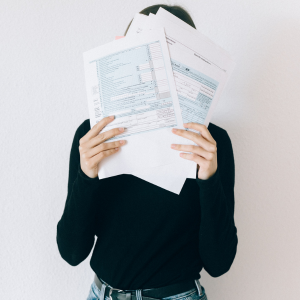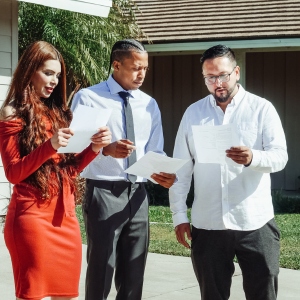
Homeowners’ Associations in Florida: Key Rules and Regulations
Florida Homeowners’ Associations (HOAs) follow intricate rules and regulations for interactions with property owners. Understanding these regulations is crucial for homeowners and investor home buyers in Lakeland and other cities in Florida, especially if HOA actions could cost them their homes. Florida HOAs have many powers under state law and community documents like Covenants, Conditions, and Restrictions. The documents define the rights and responsibilities of both the association and homeowners.
Florida Statute 720 governs HOA meetings, assessments, and community standards. HOAs can fine or lien properties for unpaid assessments or rules violations but must follow legal procedures before pursuing foreclosure. Tampa homeowners must understand their rights under these statutes to avoid HOA overreach and aggressive enforcement. This knowledge can help homeowners resolve disputes and work with associations while protecting their property rights.
Understanding HOA Authority: Legal Rights and Limitations

In Florida, homeowners’ associations (HOAs) have legal rights and authority, but they are limited to protecting homeowners. To comprehend HOA authority, remember that they enforce community rules and collect dues but are subject to state laws and the association’s governing documents. In Tampa, as elsewhere in Florida, HOAs cannot foreclose on homes for unpaid assessments without following legal procedures. The Florida Statutes outline the legal authority of HOAs to enforce covenants and collect assessments.
Homeowners should know that HOAs can lien properties for unpaid dues but must follow due process before foreclosure. Tampa residents must understand their community’s CC&Rs and Florida Statute Chapter 720, which governs HOAs. This helps members understand their rights and responsibilities within HOA governance and challenge any abuse of power by their association.
Please contact us, and we will introduce you to professionals who can assist you in comprehending homeowners’ legal rights and restrictions.
How HOAs Can Legally Enforce Community Standards and Bylaws
FL homeowners associations (HOAs) enforce community standards and bylaws to maintain neighborhood order and property values. When they buy property, homebuyers agree to these associations’ covenants, conditions, and restrictions (CC&Rs). HOAs can fine violators or restrict access to shared amenities. If homeowners continually violate community guidelines or fail to pay fines, the HOA may place a lien on the property.
This legal action usually precedes foreclosure, but state laws require HOAs to follow specific procedures first. Homeowners usually have due process rights, including notice and a hearing before significant enforcement actions. Residents can better understand HOAs and their protections under Florida law to avoid losing their homes due to non-compliance with regulations.
Understanding the Role of Covenants, Conditions, and Restrictions (CC&Rs)
Understanding Covenants, Conditions, and Restrictions (CC&Rs) in a Tampa Homeowner’s Association (HOA) in Florida requires knowing your rights. These legal documents establish HOA property rules and require homeowners to follow certain rules. They’re crucial to the neighborhood’s aesthetic and functional integrity. Typical topics include architectural guidelines, property use restrictions, and maintenance duties.
These covenants protect property values and ensure uniformity, but violating them can have serious consequences. CC&R violations may result in HOA fines or legal action, which could lead to liens on your property or foreclosure. Thus, homeowners must understand their CC&Rs to avoid HOA disputes and protect their property rights.
Financial Obligations to HOAs: Dues, Assessments, and Penalties
In Florida, homeowners in Homeowners Association (HOA) communities like Tampa have financial obligations. Regular dues, special assessments, and penalties are typical. Monthly, quarterly, or annual HOA dues cover common area maintenance, community amenities, and other essential services that boost property values. Uncovered expenses or major projects like infrastructure repairs or improvements may require special assessments.
Failure to meet financial obligations can lead to fines and interest charges that may increase if not addressed promptly. An HOA may lien a property for persistent nonpayment. Florida law may allow the HOA to foreclose if a homeowner fails to pay debts. Maintaining good standing with your HOA and protecting your home from legal action requires understanding your financial obligations, rights, and responsibilities.
The Impact of Delinquent Payments on Your Relationship with a HOA
In Tampa, Florida, missing homeowners’ association (HOA) payments can strain your relationship with the HOA and have serious consequences. If you miss assessment payments, the HOA may charge late fees and interest, increasing your financial obligations. If you don’t pay, the association can put a lien on your home, making it harder to sell your house for cash in Brandon and surrounding Florida cities or refinance. If these debts go unpaid in Florida, the HOA can foreclose.
The association seeks court permission to auction your home for unpaid dues in this legal process. Delinquent payments can cost you your home, so it’s important to communicate with your HOA and seek resolution early. Understanding Florida HOA and homeowner rights laws is essential, and our Revival Homebuyer is here to help you navigate these issues effectively
HOA Foreclosure Powers in Tampa: What Homeowners Need to Know
Homeowners in Tampa must know the significant powers that a homeowners association (HOA) can wield, particularly regarding foreclosure. In Florida, an HOA has the legal authority to initiate foreclosure proceedings if a homeowner falls behind on their assessments or fails to comply with community rules and regulations.
This can happen even if the homeowner is current on their mortgage payments. Florida law requires HOAs to follow specific procedures before moving forward with foreclosure, including providing proper notice and allowing homeowners an opportunity to resolve outstanding debts.
It’s crucial for Tampa homeowners to understand that ignoring HOA dues or fines can lead to serious consequences, including the loss of their homes. Familiarity with both state laws and the governing documents of their specific HOA is essential for any homeowner looking to protect their rights and property from potential foreclosure actions by an HOA.
The Process of HOA Lien Enforcement and Possible Foreclosure Outcomes
- HOA Lien Begins with Unpaid Dues – When a homeowner falls behind on association fees, the HOA can place a lien on the property to secure repayment.
- A Lien is a Legal Claim on the Property – It allows the HOA to recover unpaid assessments, late fees, interest, and legal costs.
- Florida Law Allows HOA Foreclosure – If the lien remains unpaid, the HOA may initiate foreclosure proceedings under Florida statutes.
- Homeowners Must Be Notified – The HOA must legally provide written notice of its intent to foreclose, including a chance to resolve the debt.
- Opportunity to Settle or Dispute the Debt – Homeowners can negotiate a payment plan or challenge the charges to halt the foreclosure process.
- Court-Ordered Sale May Follow – If unresolved, the foreclosure can proceed in court, possibly resulting in the property being sold at a public auction.
- Early Action is Crucial – Understanding and responding promptly to HOA notices can help Tampa homeowners avoid foreclosure and protect their investments.
Essential Steps to Take If Facing a HOA Foreclosure Notice in Florida

To Do If You Receive an HOA Foreclosure Notice in Florida:
- Review the Foreclosure Notice Carefully – Check for accuracy and ensure the notice complies with Florida legal requirements.
- Verify Proper Legal Procedures Were Followed – Confirm the HOA provided proper notice and accurately documented the amount owed.
- Consult a Qualified Attorney – A real estate or HOA lawyer can assess the validity of the foreclosure and advise on your legal rights and options.
- Explore Potential Defenses or Negotiation Strategies – Your attorney can help you challenge improper claims or negotiate a resolution with the HOA.
- Contact the HOA Directly – Open communication may lead to repayment plans or other alternatives that prevent foreclosure.
- Organize and Preserve All Documentation – Collect payment records, written communications, and any previous agreements with the HOA.
- Know Your Rights Under Florida Law – Understanding state statutes empowers you to take informed, timely action to protect your home.
Protecting Your Property Rights Against HOA Actions in Florida
All Florida homeowners, especially Tampa residents, must understand their property rights in relation to Homeowners Association (HOA) actions. HOAs enforce community rules, but their powers are limited. You should know that while an HOA can fine rule violators or unpaid assessments, taking possession of your home is a complicated legal process governed by state law. Florida law requires HOAs to give notice and opportunities to correct defaults before foreclosing.
Owners should read their association’s covenants, conditions, and restrictions (CC&Rs) and state laws like the Florida Homeowners’ Association Act. Often, disputes can be resolved through negotiation or mediation, avoiding foreclosure. A Homeowners Association law expert can help you protect your property rights and ensure the HOA follows legal standards when enforcing violations.
Strategies for Negotiating with Your HOA to Avoid Escalation
Follow the key points to negotiate properly:
- Understand the HOA’s Bylaws and Rules – Review governing documents to know your rights and the HOA’s legal limitations before entering negotiations.
- Initiate Open, Respectful Communication – Contact board members early to express your intent to resolve disputes calmly and constructively.
- Document Everything in Writing – Keep a written record of all interactions, agreements, and correspondence to ensure mutual accountability.
- Consider Third-Party Mediation – Mediation can provide a neutral space for a fair resolution if direct negotiation stalls.
- Attend HOA Board Meetings – Gain valuable insight into how decisions are made and stay informed about current issues that may affect your property.
- Stay Calm and Informed – A level-headed, knowledgeable approach helps reduce tension and increases the chances of a positive outcome.
- Focus on Cooperation, Not Confrontation – Building rapport with your HOA can lead to faster, more amicable resolutions and protect your home from unnecessary escalation.
Legal Recourse for Unfair HOA Practices in Tampa, Florida
Residents of Tampa, Florida, facing unfair practices from their Homeowner’s Association (HOA), have various legal options. Understanding your rights is crucial when facing HOA overreach. HOAs in Florida must follow the laws outlined in Florida Statutes Chapter 720, which governs homeowners’ associations. Tampa homeowners can file a complaint with the Florida Department of Business and Professional Regulation if a HOA violates the law.
Legal action may involve mediation or arbitration for effective dispute resolution. Homeowners may also sue a HOA for unjust foreclosure. An experienced Florida real estate and HOA attorney can help you protect your property rights from HOA violations. Community advocacy groups familiar with local HOA issues can help address grievances collectively and ensure HOA compliance with governing documents and state laws.
Preventative Measures to Maintain Good Standing with Your Homeowners’ Association

To stay in good standing with your HOA in Tampa, Florida:
- Read and Understand the HOA’s CC&Rs – Familiarize yourself with the covenants, conditions, and restrictions regarding property maintenance, renovations, and community rules.
- Attend HOA Meetings Regularly – Stay informed about policy updates, upcoming changes, and decisions that may affect your rights and responsibilities as a homeowner.
- Pay Dues on Time – Submit your HOA payments promptly and fully to avoid late fees, penalties, or potential liens.
- Communicate Early if Issues Arise – If you’re facing financial hardship or need flexibility, contact the HOA board to discuss solutions or request a payment plan.
- Keep Detailed Records – To protect yourself in case of disputes, Maintain organized documentation of all payments, emails, letters, and conversations with the HOA.
- Be Proactive and Respectful – Following the rules and communicating positively assists in establishing a good working relationship with the HOA and helps prevent any undue friction.
Homeowner Advocacy Groups: Resources for Dealing with Overreaching HOAs
Homeowner advocacy groups help Tampa residents deal with overbearing homeowners associations (HOAs). These organizations help homeowners understand their rights when faced with aggressive HOA actions like property foreclosure. Legal advice, workshops, and educational materials from advocacy groups help homeowners understand complex HOA bylaws. They also mediate homeowner-HOA disputes to prevent them from escalating.
These groups help residents challenge unfair practices and ensure HOAs follow state laws by connecting them with experienced real estate attorneys in Florida. They also raise community awareness of HOA power limits and promote transparency and accountability. Homeowner advocacy groups lobby for legislation to protect property owners from HOA abuse. Also, sell your parents’ house using power of attorney if you’re managing the sale on their behalf and need a straightforward way to navigate the process.
Can a HOA in Florida Take Your House?
In Florida, Homeowners Associations (HOAs) have certain legal rights and powers when it comes to enforcing community rules and regulations. Still, the question of whether an HOA can take your house is more complex. Under Florida law, an HOA cannot directly seize your home; however, they can place a lien on your property for unpaid assessments or fines.
If these debts remain unresolved, the HOA may initiate foreclosure proceedings to recover what is owed. It’s crucial for homeowners in Tampa and throughout Florida to understand their rights and responsibilities regarding HOA fees and compliance with community standards.
Consulting with a knowledgeable attorney specializing in Florida real estate law can clarify how to navigate potential disputes with an HOA. By staying informed about the legal framework governing HOAs in Florida, homeowners can better protect their property from foreclosure risks associated with unpaid dues or violations of association rules.
What Power Does HOA Have in Florida?
Florida Homeowners Associations (HOAs) control properties in their communities, but homeowners must understand their power. Florida HOAs can fine and lien properties for unpaid assessments or governing document violations. Chapter 720 of the Florida Statutes governs HOAs and their members. HOAs can maintain community standards through architectural controls and rule enforcement, but they must be fair.
Tampa and Florida homeowners should know that HOAs can lien your property for unpaid fees, but foreclosure is a last resort. Understanding your rights under Florida law can help you resolve HOA disputes and ensure that the association acts legally.
What Is the New Law About HOAs in Florida?
Florida introduced HOA legislation in 2023 to improve transparency and protect homeowners’ rights. This law restricts HOAs’ property lien and foreclosure authority. The new law requires Florida HOAs to provide homeowners with more detailed financial disclosures, increasing financial accountability. The law also restricts Tampa and Florida HOAs from foreclosing on unpaid dues without a clear solution.
This includes mandatory mediation and extended notice periods before legal action against a homeowner’s property. Understanding these changes helps residents navigate their community association rights and obligations and protect their homes from HOA overreach.
What Is Rule 720 in Florida?
Under Chapter 720 of the Florida Statutes, Rule 720 governs homeowners’ associations (HOAs). This chapter describes Florida HOAs, including Tampa’s powers, duties, and limitations. HOAs’ ability to enforce covenants and restrictions and impose fines or liens on properties depends on Rule 720, which homeowners must understand. The statute outlines board meetings, voting, and dispute-resolution procedures.
It details the legal steps an HOA must take to foreclose on a property for unpaid assessments or violations. Homeowners should read Rule 720 to understand their community rights and responsibilities and ensure that HOA actions comply with Florida law. Learning about Rule 720 can help Tampa residents better manage HOA conflicts and protect their homeownership rights under Florida law.
Do you want to sell your house? Do you want to sell quickly, avoid expensive repairs, or just make an easy sale? This business is here to help. We make fair cash offers, take care of all the details, and make the whole process easy. Do you want to sell or have a question? For an offer that doesn’t bind you, call us at (813) 548-3674. Start right away!
| HOMEOWNERS’ ASSOCIATION | COVENANTS RUNNING WITH THE LAND | DEED RESTRICTIONS | CONSTITUTION | EXPENDITURES | FLORIDIANS |
| CONTRACT | GUARANTEES | CONTRACTING | COMMITTEE | ELECTIONS | ANNUAL BUDGET |
| TENANTS | BOARD OF DIRECTORS | MEMBER OF THE BOARD | BOARDS OF DIRECTORS | MEMBERS OF THE BOARD | SUED |
| LITIGATION | TAMPA , FL | PETITION | TRACT | PARCEL | FINANCIAL STATEMENTS |
| CONSTRUCTION | OVERSIGHT | INSURANCE | ACCOUNTING | ACCOUNTANCY | |
| ELECTRONIC MAIL | POLICY | LAWYER | STATUTORY | LIENHOLDER | ATTORNEY FEES |
| ATTORNEY’S FEES | ARTICLES OF INCORPORATION | TELEPHONE | ROUTINE MAINTENANCE | CONDOMINIUMS | CONDOS |
| CONDOMINIUM ASSOCIATIONS | VEHICLE | LEGISLATURE | INSPECTION | THE UNITED STATES | UNITED STATES |
| RENTERS | LANDLORD | CORPORATION | COMPANY | BINDING ARBITRATION | MAILING |
| SAFETY | REASON | PUBLIC UTILITY | UTILITY | NATURAL GAS UTILITY | UTILITY SERVICES |
| DRIVEWAY | DESCRIPTION | CRIME | OFFENSE | OFFENDER | FRANCHISE |
| THE RIGHT TO VOTE | MINUTES | BUSINESS ENTITIES | BUSINESS ENTITY | LEASE | LANDSCAPING |
| FELON | DISCRIMINATORY | DISCRIMINATION | DEED | COMPLAINTS | MISDEMEANOR |
| RELIEF | FAIR HOUSING | FAIR HOUSING ACT | FRAUDULENT | FRAUD | KICKBACK |
| BRIBERY | DEPARTMENT OF STATE | BILL OF RIGHTS | NOISE | MOTORIZED VEHICLE | MOTOR VEHICLE |
| ORDINANCES | LOCAL ORDINANCE | LICENSE | LIABILITY | LIABILITIES | LANGUAGE |
| FIRST RESPONDER | TRIAL | THEFT | SIDEWALKS | PUNISHMENT | TURF |
| NOISE COMPLAINT | MONEY | FLORIDA LEGISLATURE | FINANCES | EVIDENCE | DOORS |
| DISABILITY | COMMERCIAL MOTOR VEHICLE | BOARD OF DIRECTORS | THE BOARD OF DIRECTORS | HOMEOWNERS ASSOCIATION BILL OF |
